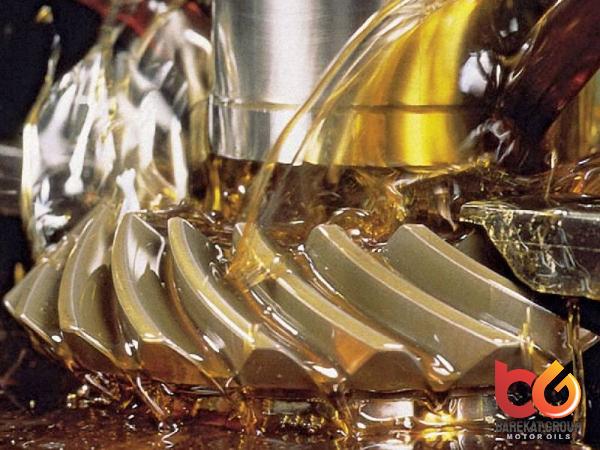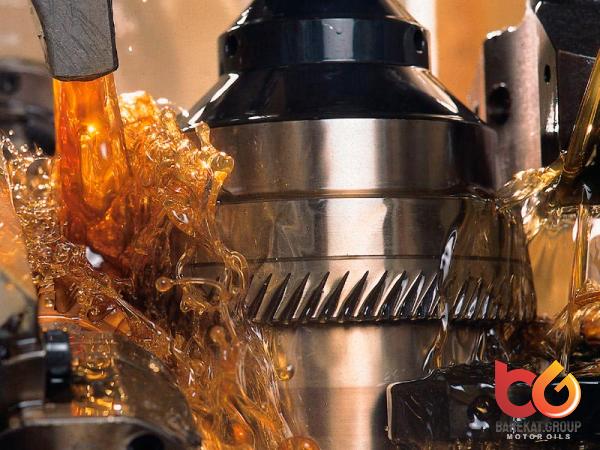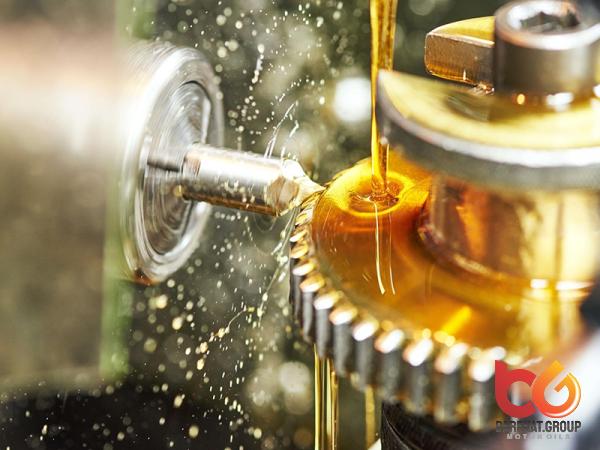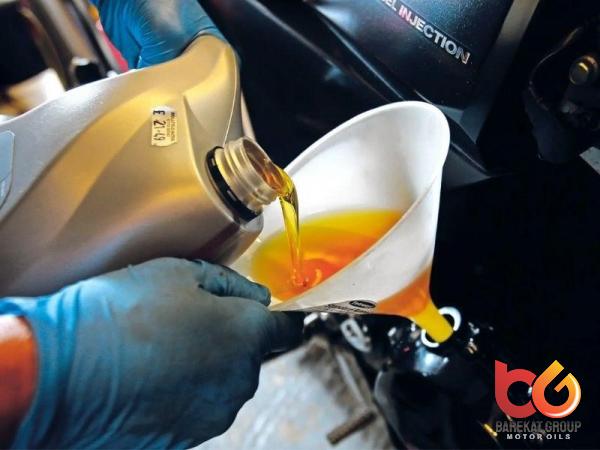Exploring the Best Oil Resistant Materials: A Comprehensive Overview Introduction: Oil resistance is a crucial characteristic required in various industries, including automotive, manufacturing, aerospace, and energy sectors. Equipment and components that come into contact with oil, such as seals, gaskets, hoses, and protective clothing, need to withstand exposure to oil and its associated challenges. This article aims to provide a detailed summary of the best oil resistant materials available in the market today. 1. Nitrile Rubber (NBR): Nitrile rubber is a versatile and widely used material known for its excellent oil resistance properties. It exhibits high tensile strength, resistance to abrasion, and durability, making it suitable for various applications. NBR is commonly used in gaskets, seals, O-rings, gloves, and fuel handling equipment. 2. Fluorocarbon Rubber (FKM): Fluorocarbon rubber, also known as Viton®, is highly resistant to oil, fuels, and chemicals. It offers exceptional heat resistance, maintaining its integrity even when exposed to high temperatures. FKM is often utilized in automotive components, fuel systems, and applications with extreme sealing requirements. 3. Polyurethane (PU): Polyurethane is a versatile material that offers good resistance to oil and other fluids. It possesses excellent mechanical properties, such as high abrasion resistance and flexibility. Polyurethane is commonly used in seals, hoses, belting, and other heavy-duty applications. 4. Silicone Rubber: While silicone rubber is not as oil-resistant as other materials mentioned above, it still provides decent resistance in comparison to many other elastomers. Silicone exhibits excellent high-temperature resistance, flexibility, and electrical insulation properties. It is commonly used in applications where temperature fluctuations are expected, such as automotive engine gaskets and seals. 5. Perfluoroelastomers (FFKM): Perfluoroelastomers, also known as Kalrez®, are a type of high-performance elastomers specifically designed for extreme conditions. FFKMs exhibit excellent resistance to aggressive chemicals, oils, solvents, and high temperatures.
Engine oil
 They are often used in applications requiring exceptional chemical resistance, such as semiconductor manufacturing, oilfield equipment, and aircraft engine seals. 6. Ethylene Propylene Diene Monomer (EPDM): EPDM rubber offers good resistance to various fluids, including oil and water-based solutions. It is known for its excellent weathering resistance and long-term durability. EPDM is commonly used in automotive hoses, gaskets, roofing membranes, and electrical insulation. 7. Neoprene: Neoprene is a synthetic rubber known for its excellent resistance to oil, ozone, and weathering. It provides good mechanical properties and is commonly used in applications requiring oil resistance, such as gaskets, seals, and hoses. 8. Specialty Coatings: In addition to rubber-based materials, there are various specialty coatings available that offer oil resistance. These coatings are often used to protect surfaces from oil or to enhance oil resistance in different industries. Examples include epoxy, polyurethane, and ceramic-based coatings. Conclusion: Choosing the right oil-resistant material for a specific application is essential to ensure long-term performance and reliability. The materials discussed in this summary, such as nitrile rubber, fluorocarbon rubber, polyurethane, silicone rubber, perfluoroelastomers, EPDM, neoprene, and specialty coatings, all offer varying levels of oil resistance. By understanding their properties and capabilities, businesses can select the most suitable material to meet their specific requirements and enhance their equipment’s performance and longevity.Best Oil Resistant Materials: A Comprehensive Guide for Businesses 1. Nitrile Rubber (NBR): Nitrile rubber, also known as NBR, is an excellent choice for oil-resistant applications. It is a widely utilized elastomer due to its outstanding resistance to petroleum-based oils, fuels, and lubricants. NBR exhibits high tensile strength, good abrasion resistance, and durability, making it suitable for a range of applications in various industries. Business Applications: – Automotive Industry: NBR is commonly used in the automotive sector for gaskets, seals, and O-rings due to its ability to withstand exposure to oil and fuel.
They are often used in applications requiring exceptional chemical resistance, such as semiconductor manufacturing, oilfield equipment, and aircraft engine seals. 6. Ethylene Propylene Diene Monomer (EPDM): EPDM rubber offers good resistance to various fluids, including oil and water-based solutions. It is known for its excellent weathering resistance and long-term durability. EPDM is commonly used in automotive hoses, gaskets, roofing membranes, and electrical insulation. 7. Neoprene: Neoprene is a synthetic rubber known for its excellent resistance to oil, ozone, and weathering. It provides good mechanical properties and is commonly used in applications requiring oil resistance, such as gaskets, seals, and hoses. 8. Specialty Coatings: In addition to rubber-based materials, there are various specialty coatings available that offer oil resistance. These coatings are often used to protect surfaces from oil or to enhance oil resistance in different industries. Examples include epoxy, polyurethane, and ceramic-based coatings. Conclusion: Choosing the right oil-resistant material for a specific application is essential to ensure long-term performance and reliability. The materials discussed in this summary, such as nitrile rubber, fluorocarbon rubber, polyurethane, silicone rubber, perfluoroelastomers, EPDM, neoprene, and specialty coatings, all offer varying levels of oil resistance. By understanding their properties and capabilities, businesses can select the most suitable material to meet their specific requirements and enhance their equipment’s performance and longevity.Best Oil Resistant Materials: A Comprehensive Guide for Businesses 1. Nitrile Rubber (NBR): Nitrile rubber, also known as NBR, is an excellent choice for oil-resistant applications. It is a widely utilized elastomer due to its outstanding resistance to petroleum-based oils, fuels, and lubricants. NBR exhibits high tensile strength, good abrasion resistance, and durability, making it suitable for a range of applications in various industries. Business Applications: – Automotive Industry: NBR is commonly used in the automotive sector for gaskets, seals, and O-rings due to its ability to withstand exposure to oil and fuel.
Specifications of Engine oil
 – Industrial Machinery: Nitrile rubber is utilized in hydraulic systems, valves, and hoses where exposure to oil and other fluids is common. – Manufacturing: NBR is used in manufacturing processes where oil resistance is essential, such as in the production of seals, gaskets, and conveyor belts. 2. Fluorocarbon Rubber (FKM): Fluorocarbon rubber, often referred to by the brand name Viton®, is widely recognized for its excellent resistance to oil, fuels, and chemicals. FKM offers exceptional high-temperature resistance and can maintain its integrity even when exposed to harsh operating conditions. Business Applications: – Aerospace Industry: FKM is commonly used in aircraft fuel systems and engine components due to its resistance to aviation fuels and hydraulic fluids. – Automotive Industry: FKM is utilized in automotive applications where high-performance seals and gaskets are required, such as in engines, transmissions, and fuel systems. – Chemical Processing: Fluorocarbon rubber is suitable for applications involving chemical processing, such as seals, gaskets, and o-rings in pumps and valves. 3. Polyurethane (PU): Polyurethane is a versatile material that offers good resistance to oil and other fluids. It is known for its excellent mechanical properties, including high abrasion resistance, tensile strength, and flexibility, making it a preferred choice for heavy-duty applications. Business Applications: – Manufacturing and Machinery: Polyurethane is commonly used in seals, gaskets, and hoses used in manufacturing equipment, hydraulic systems, and heavy machinery. – Oil and Gas Industry: PU coatings and linings are employed in pipelines, tanks, and other equipment where resistance to oil and chemical exposure is crucial. – Mining and Construction: Polyurethane is utilized in mining applications like conveyor belts or as protective coating in construction equipment, providing resistance against oil and abrasion. 4. Silicone Rubber: Although not as oil-resistant as some other materials, silicone rubber offers decent resistance in comparison to many elastomers. It is characterized by high-temperature resistance, flexibility, and excellent electrical insulation properties.
– Industrial Machinery: Nitrile rubber is utilized in hydraulic systems, valves, and hoses where exposure to oil and other fluids is common. – Manufacturing: NBR is used in manufacturing processes where oil resistance is essential, such as in the production of seals, gaskets, and conveyor belts. 2. Fluorocarbon Rubber (FKM): Fluorocarbon rubber, often referred to by the brand name Viton®, is widely recognized for its excellent resistance to oil, fuels, and chemicals. FKM offers exceptional high-temperature resistance and can maintain its integrity even when exposed to harsh operating conditions. Business Applications: – Aerospace Industry: FKM is commonly used in aircraft fuel systems and engine components due to its resistance to aviation fuels and hydraulic fluids. – Automotive Industry: FKM is utilized in automotive applications where high-performance seals and gaskets are required, such as in engines, transmissions, and fuel systems. – Chemical Processing: Fluorocarbon rubber is suitable for applications involving chemical processing, such as seals, gaskets, and o-rings in pumps and valves. 3. Polyurethane (PU): Polyurethane is a versatile material that offers good resistance to oil and other fluids. It is known for its excellent mechanical properties, including high abrasion resistance, tensile strength, and flexibility, making it a preferred choice for heavy-duty applications. Business Applications: – Manufacturing and Machinery: Polyurethane is commonly used in seals, gaskets, and hoses used in manufacturing equipment, hydraulic systems, and heavy machinery. – Oil and Gas Industry: PU coatings and linings are employed in pipelines, tanks, and other equipment where resistance to oil and chemical exposure is crucial. – Mining and Construction: Polyurethane is utilized in mining applications like conveyor belts or as protective coating in construction equipment, providing resistance against oil and abrasion. 4. Silicone Rubber: Although not as oil-resistant as some other materials, silicone rubber offers decent resistance in comparison to many elastomers. It is characterized by high-temperature resistance, flexibility, and excellent electrical insulation properties.
Buy Engine oil
 Business Applications: – Automotive Industry: Silicone rubber is often used in automotive engine gaskets, seals, and hoses where exposure to oils and high temperatures occur. – Electronics Industry: Silicone rubber is used in various electronic components, such as connectors and insulators, due to its electrical insulation properties. – Medical and Food Industry: Silicone rubber is employed in medical devices and food processing equipment, where it provides oil resistance along with biocompatibility and easy sterilization. 5. Perfluoroelastomers (FFKM): Perfluoroelastomers, commonly known by the brand name Kalrez®, are high-performance elastomers designed for extreme conditions. FFKMs are known for their exceptional resistance to aggressive chemicals, oils, solvents, and high temperatures. Business Applications: – Semiconductor Manufacturing: FFKMs are utilized in critical applications within the semiconductor industry, such as etching and process equipment, where resistance to harsh chemicals and high temperatures is essential. – Oilfield Equipment: In the oil and gas industry, FFKMs are used in wellhead seals, valves, and other equipment exposed to aggressive drilling fluids and high-pressure conditions. – Aerospace Industry: FFKMs find applications in aerospace components, such as O-rings and seals, where resistance to extreme temperatures, fuels, and lubricants is required. 6. Ethylene Propylene Diene Monomer (EPDM): EPDM rubber is known for its resistance to various fluids, including oil and water-based solutions. It provides excellent weathering resistance and long-term durability, making it suitable for outdoor and industrial applications. Business Applications: – Automotive Industry: EPDM is commonly used in automotive hoses, gaskets, and weatherstripping due to its resistance to automotive fluids and excellent sealing properties.
Business Applications: – Automotive Industry: Silicone rubber is often used in automotive engine gaskets, seals, and hoses where exposure to oils and high temperatures occur. – Electronics Industry: Silicone rubber is used in various electronic components, such as connectors and insulators, due to its electrical insulation properties. – Medical and Food Industry: Silicone rubber is employed in medical devices and food processing equipment, where it provides oil resistance along with biocompatibility and easy sterilization. 5. Perfluoroelastomers (FFKM): Perfluoroelastomers, commonly known by the brand name Kalrez®, are high-performance elastomers designed for extreme conditions. FFKMs are known for their exceptional resistance to aggressive chemicals, oils, solvents, and high temperatures. Business Applications: – Semiconductor Manufacturing: FFKMs are utilized in critical applications within the semiconductor industry, such as etching and process equipment, where resistance to harsh chemicals and high temperatures is essential. – Oilfield Equipment: In the oil and gas industry, FFKMs are used in wellhead seals, valves, and other equipment exposed to aggressive drilling fluids and high-pressure conditions. – Aerospace Industry: FFKMs find applications in aerospace components, such as O-rings and seals, where resistance to extreme temperatures, fuels, and lubricants is required. 6. Ethylene Propylene Diene Monomer (EPDM): EPDM rubber is known for its resistance to various fluids, including oil and water-based solutions. It provides excellent weathering resistance and long-term durability, making it suitable for outdoor and industrial applications. Business Applications: – Automotive Industry: EPDM is commonly used in automotive hoses, gaskets, and weatherstripping due to its resistance to automotive fluids and excellent sealing properties.
Engine oil + buy and sell
 – Construction Industry: EPDM is employed in roofing membranes and seals in construction applications requiring resistance to oil, weathering, and extreme temperatures. – Electrical Industry: EPDM is used as insulation and gaskets in electrical equipment, offering resistance to oils and environmental elements. 7. Neoprene: Neoprene, a synthetic rubber, is well-known for its excellent resistance to oil, ozone, and weathering. It provides good mechanical properties and is commonly used in various applications requiring oil resistance. Business Applications: – Marine Industry: Neoprene is utilized in marine applications such as gaskets, seals, and hoses due to its resistance to oil, saltwater, and weathering. – Automotive Industry: Neoprene finds use in the automotive sector for oil seals, hose covers, and belts, providing resistance to oil, fuel, and heat. – Industrial Applications: Neoprene is employed in a wide range of industrial applications like seals, gaskets, and conveyor belts requiring resistance to oil and weathering. 8. Specialty Coatings: In addition to rubber-based materials, specialty coatings provide oil resistance to various surfaces. These coatings are often used to protect equipment or enhance oil resistance in different industries. Business Applications: – Manufacturing Industry: Epoxy coatings are applied to machinery and equipment to provide resistance to oil and chemicals, preventing corrosion and extending the equipment’s lifespan. – Automotive Industry: Polyurethane-based coatings are used in automotive undercoatings and engine components to protect against oil and other fluids. – Energy Sector: Ceramic-based coatings are utilized in the energy sector, such as oil and gas pipelines, to provide enhanced resistance to oil and extend product life. Conclusion: Selecting the best oil-resistant material is crucial to ensuring optimal performance and longevity of equipment across various industries. Materials like nitrile rubber, fluorocarbon rubber, polyurethane, silicone rubber, perfluoroelastomers, EPDM, neoprene, and specialty coatings offer varying levels of oil resistance. Understanding the properties and applications of these materials can help businesses make informed decisions about the most suitable material to meet their specific requirements. By employing the best oil-resistant solutions, companies can enhance the performance, durability, and reliability of their equipment, ultimately improving productivity and reducing maintenance costs.
– Construction Industry: EPDM is employed in roofing membranes and seals in construction applications requiring resistance to oil, weathering, and extreme temperatures. – Electrical Industry: EPDM is used as insulation and gaskets in electrical equipment, offering resistance to oils and environmental elements. 7. Neoprene: Neoprene, a synthetic rubber, is well-known for its excellent resistance to oil, ozone, and weathering. It provides good mechanical properties and is commonly used in various applications requiring oil resistance. Business Applications: – Marine Industry: Neoprene is utilized in marine applications such as gaskets, seals, and hoses due to its resistance to oil, saltwater, and weathering. – Automotive Industry: Neoprene finds use in the automotive sector for oil seals, hose covers, and belts, providing resistance to oil, fuel, and heat. – Industrial Applications: Neoprene is employed in a wide range of industrial applications like seals, gaskets, and conveyor belts requiring resistance to oil and weathering. 8. Specialty Coatings: In addition to rubber-based materials, specialty coatings provide oil resistance to various surfaces. These coatings are often used to protect equipment or enhance oil resistance in different industries. Business Applications: – Manufacturing Industry: Epoxy coatings are applied to machinery and equipment to provide resistance to oil and chemicals, preventing corrosion and extending the equipment’s lifespan. – Automotive Industry: Polyurethane-based coatings are used in automotive undercoatings and engine components to protect against oil and other fluids. – Energy Sector: Ceramic-based coatings are utilized in the energy sector, such as oil and gas pipelines, to provide enhanced resistance to oil and extend product life. Conclusion: Selecting the best oil-resistant material is crucial to ensuring optimal performance and longevity of equipment across various industries. Materials like nitrile rubber, fluorocarbon rubber, polyurethane, silicone rubber, perfluoroelastomers, EPDM, neoprene, and specialty coatings offer varying levels of oil resistance. Understanding the properties and applications of these materials can help businesses make informed decisions about the most suitable material to meet their specific requirements. By employing the best oil-resistant solutions, companies can enhance the performance, durability, and reliability of their equipment, ultimately improving productivity and reducing maintenance costs.
Your comment submitted.